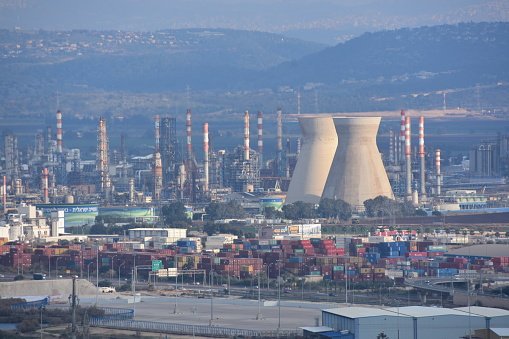Business
What are the main threats to Israel’s fuel supply?
Israel’s fuel supply faces significant threats from regional adversaries, primarily Iran and its allies, such as Hezbollah. Recent events, including an attempted drone attack on the Karish gas platform, underscore the vulnerability of Israel’s energy infrastructure.
If these attacks were to succeed, they could disrupt operations at key gas platforms like Karish and Leviathan, severely impacting both domestic consumption and exports to neighboring countries. Such disruptions could lead to higher fuel prices and energy shortages. The Bazan Group operates Israel’s largest oil refinery in Haifa and plays a crucial role in the country’s fuel industry. It processes crude oil and supplies refined petroleum products to meet local demand. However, the refinery is not immune to regional tensions. Any significant threats to gas production or distribution can result in a spike in crude oil prices, which, in turn, raises the cost of refined products.
What are the potential consequences of energy disruptions in Israel?
Energy disruptions in Israel, particularly those caused by external threats, could lead to significant economic consequences. If the Karish and Leviathan platforms are compromised, Israel may need to resort to more expensive and environmentally damaging energy sources, such as coal or diesel, to meet its energy needs. This shift not only places a financial burden on the Israeli economy but could also increase fuel prices for consumers. Additionally, any substantial decrease in Israeli gas exports could have repercussions for regional partners, such as Jordan and Egypt, which rely on Israeli gas imports.
How is Israel preparing to mitigate these threats?
In response to the ongoing threats to its energy infrastructure, Israel is taking proactive measures to enhance its security protocols. The Israeli Navy has already intercepted drone attacks aimed at gas platforms, demonstrating their commitment to safeguarding critical energy assets. Moreover, the government is investing in alternative energy sources and stockpiling backup fuels to ensure that domestic energy needs are met in case of significant disruptions.

















